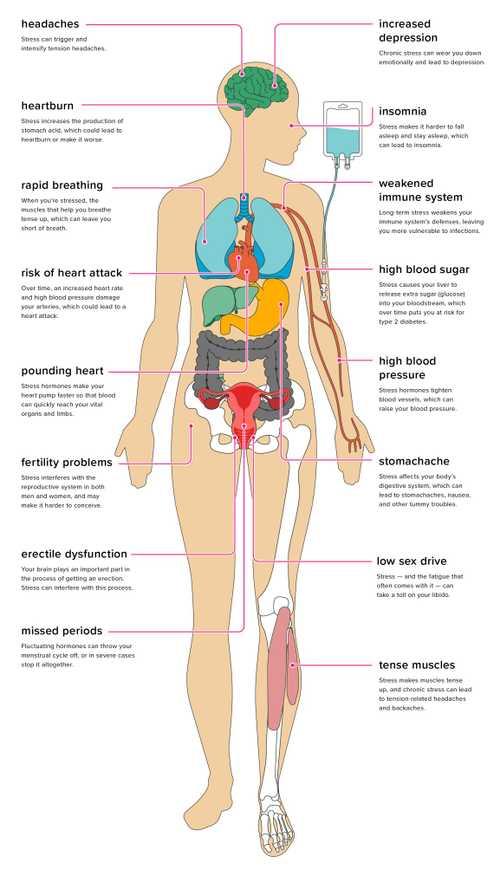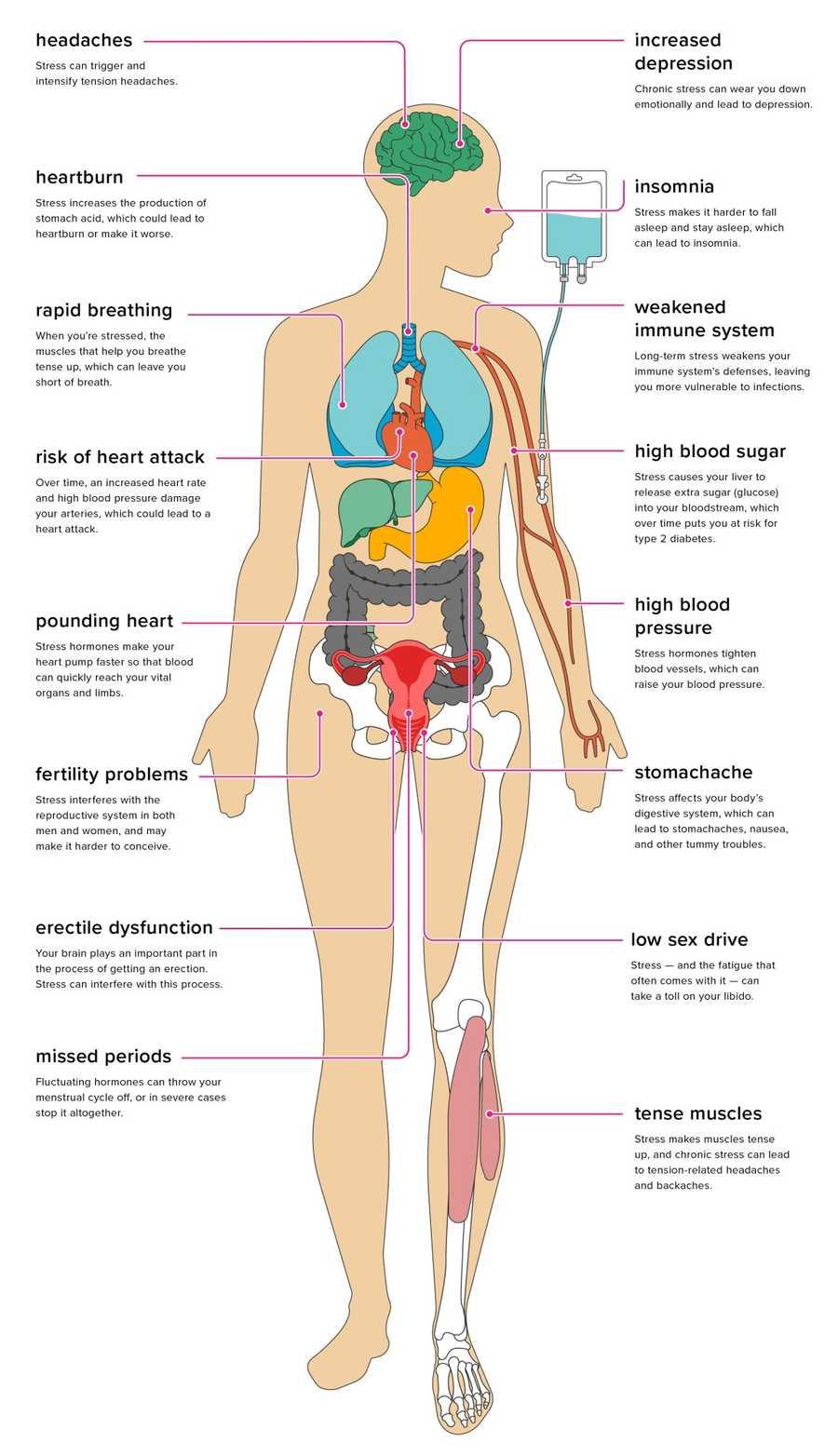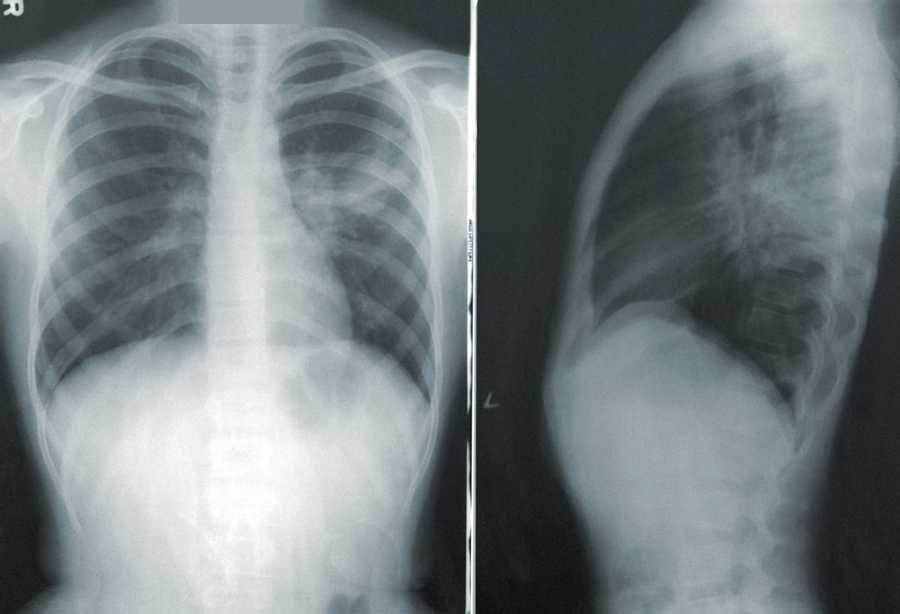The Effects of Stress on Your Body
Curated from: healthline.com
Ideas, facts & insights covering these topics:
10 ideas
·1.86K reads
20
1
Explore the World's Best Ideas
Join today and uncover 100+ curated journeys from 50+ topics. Unlock access to our mobile app with extensive features.
Background
You’re sitting in traffic, late for an important meeting, watching the minutes tick away. Your hypothalamus, a tiny control tower in your brain, decides to send out the order: Send in the stress hormones! These stress hormones are the same ones that trigger your body’s “fight or flight” response. Your heart races, your breath quickens, and your muscles ready for action. This response was designed to protect your body in an emergency by preparing you to react quickly. But when the stress response keeps firing, day after day, it could put your health at serious risk.
34
327 reads
Physical Effects Of Stress?
This image has a list of physical effects that are caused by stress.
33
397 reads
What Is Stress?
Stress is a natural physical and mental reaction to life experiences. Everyone expresses stress from time to time. Anything from everyday responsibilities like work and family to serious life events such as a new diagnosis, war, or the death of a loved one can trigger stress. For immediate, short-term situations, stress can be beneficial to your health. It can help you cope with potentially serious situations. Your body responds to stress by releasing hormones that increase your heart and breathing rates and ready your muscles to respond.
32
201 reads
The Science Behind Stress
Your central nervous system (CNS) is in charge of your “fight or flight” response. In your brain, the hypothalamus gets the ball rolling, telling your adrenal glands to release the stress hormones adrenaline and cortisol . These hormones rev up your heartbeat and send blood rushing to the areas that need it most in an emergency, such as your muscles, heart, and other important organs.
When the perceived fear is gone, the hypothalamus should tell all systems to go back to normal. If the CNS fails to return to normal, or if the stressor doesn’t go away, the response will continue.
31
163 reads
Stress Hormones And Respiratory And Cardiovascular Systems
During the stress response, you breathe faster in an effort to quickly distribute oxygen-rich blood to your body. If you already have a breathing problem like asthma or emphysema , stress can make it even harder to breathe.
Under stress, your heart also pumps faster. Stress hormones cause your blood vessels to constrict and divert more oxygen to your muscles so you’ll have more strength to take action. But this also raises your blood pressure.
So, frequent/ chronic stress will make your heart work too hard for too long. When blood pressure rises, so do risks for having a stroke/ heart attack
32
149 reads
Reproductive System
It’s not unusual to lose your desire when you’re under constant stress. While short-term stress may cause men to produce more of the male hormone testosterone, this effect doesn’t last, as long term stress can see begin to drop. This can interfere with sperm production and cause erectile dysfunction / impotence. Chronic stress may also increase risk of infection for male reproductive organs like the prostate and testes.
For women, stress can affect the menstrual cycle. It can lead to irregular, heavier, or more painful periods. Chronic stress can also magnify the physical symptoms of menopause
33
170 reads
How Stress Can Affect The Digestive System
The rush of hormones, rapid breathing, and increased heart rate can also upset your digestive system . You’re more likely to have heartburn or acid reflux thanks to an increase in stomach acid. Stress doesn’t cause ulcers (a bacterium called H. pylori often does), but it can increase your risk for them and cause existing ulcers to act up.
Stress can also affect the way food moves through your body, leading to diarrhea or constipation . You might also experience nausea , vomiting, or a stomachache .
31
106 reads
High Blood Sugar
Under stress, your liver produces extra blood sugar (glucose ) to give you a boost of energy. If you’re under chronic stress, your body may not be able to keep up with this extra glucose surge. Chronic stress may increase your risk of developing type 2 diabetes .
30
121 reads
Muscle Pain
Your muscles tense up to protect themselves from injury when you’re stressed. They tend to release again once you relax, but if you’re constantly under stress, your muscles may not get the chance to relax. Tight muscles cause headaches, back and shoulder pain, and body aches. Over time, this can set off an unhealthy cycle as you stop exercising and turn to pain medication for relief.
32
112 reads
Stress And The Immune System
Stress stimulates the immune system, which can be a plus for immediate situations. This stimulation can help you avoid infections and heal wounds. But over time, stress hormones will weaken your immune system and reduce your body’s response to foreign invaders. People under chronic stress are more susceptible to viral illnesses like the flu and the common cold , as well as other infections. Stress can also increase the time it takes you to recover from an illness or injury..
31
118 reads
IDEAS CURATED BY
CURATOR'S NOTE
Temporary stress can induce a short fight or flight response, but chronic stress can cause permanent damage to our heath. As someone who has not been relaxing at all due to the heat of mock exams, university interviews, intense revision plus a never-ending to-do list, I decided to read this article to deter me from pressurising myself and force myself to pause and make a better system for me.
“
M 's ideas are part of this journey:
Learn more about health with this collection
How to practice self-compassion
How to identify and challenge negative self-talk
How to build self-confidence
Related collections
Similar ideas
15 ideas
11 Effects of Sleep Deprivation on Your Body
healthline.com
4 ideas
10 Simple Ways to Cope with Stress
sutterhealth.org
4 ideas
Understanding the stress response - Harvard Health
health.harvard.edu
Read & Learn
20x Faster
without
deepstash
with
deepstash
with
deepstash
Personalized microlearning
—
100+ Learning Journeys
—
Access to 200,000+ ideas
—
Access to the mobile app
—
Unlimited idea saving
—
—
Unlimited history
—
—
Unlimited listening to ideas
—
—
Downloading & offline access
—
—
Supercharge your mind with one idea per day
Enter your email and spend 1 minute every day to learn something new.
I agree to receive email updates










